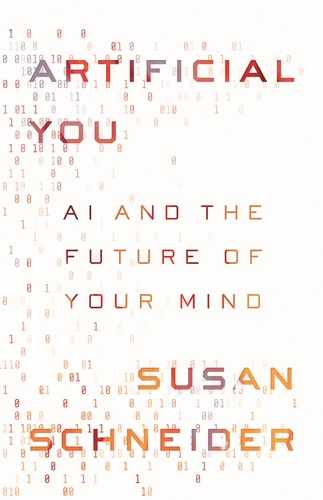CONCLUSION: THE AFTERLIFE OF THE BRAIN
At the heart of this book is a dialogue between philosophy and science. We’ve seen that the science of emerging technologies can challenge and expand our philosophical understanding of the mind, self, and person. Conversely, philosophy sharpens our sense of what these emerging technologies can achieve: whether there can be conscious robots, whether you could replace much of your brain with microchips and be confident that it would still be you, and so on.
This book has attempted, very provisionally, to explore mind design space. Although we do not know whether there will be places like Immortex or the Center for Mind Design, I wouldn’t be surprised. The events of today speak for themselves: This is a time when AI is projected to replace most blue- and white-collar jobs over the next several decades, and in which there are active efforts to merge humans with machines.
I’ve suggested that it is not a foregone conclusion that sophisticated AIs will be conscious. Instead, I’ve argued for a middle-of-the-road approach, one that rejects the Chinese Room thought experiment, yet doesn’t assume, based on the computational nature of the brain or the conceptual possibility of isomorphs, that sophisticated AI will be conscious. Conscious AI may not, in practice, be built, or it may not be compatible with the laws of physics to create consciousness in a different, nonbiological, substrate. But by carefully gauging whether the AIs we develop are conscious, we can approach the issue with care. And by publicly debating all this in a way that moves beyond both technophobia and the tendency to view the AIs that look superficially humanlike as conscious, we will be better able to judge whether and how conscious AI should be built. These should be choices societies make carefully, and all stakeholders must be involved.
I’ve further emphasized that from an ethical standpoint, it is best to assume that a sophisticated AI may be conscious, at least until we develop tests for consciousness that we can have confidence in. Any mistake could wrongly influence the debate over whether AIs might be worthy of special ethical consideration as sentient beings, and it is better to err on the side of safety. Not only could failure to recognize a machine as sentient cause needless pain and suffering, but, as films like Ex Machina and I, Robot illustrate, any failure to be charitable to AI may come back to haunt us, as they may treat us as we treated them.
Some younger readers may one day be faced with an opportunity to make mind-design decisions. If you are one of these readers, my message to you is this: Before you enhance, you must reflect on who you are. If you are uncertain as to the ultimate nature of the person, as I am, take a safe, cautious route: As much as possible, stick to gradual, biologically based therapies and enhancements, ones that mirror the sort of changes that normal brains undergo in the process of learning and maturation. Bearing in mind all the thought experiments that question more radical approaches to enhancement, and the general lack of agreement in the personal-identity debate, this cautious approach is most prudent. It is best to avoid radical, quick changes, even ones that do not alter the type of substrate on has (e.g., carbon versus silicon). It is also prudent to avoid attempts to “migrate” the mind to another substrate.
Until we know more about synthetic consciousness, we cannot be confident that transferring key mental functions to AI components is safe in parts of the brain underlying consciousness. Of course, we have yet to determine whether AI is conscious, so we do not know whether you, or perhaps more precisely, the AI copy of you, would even be a conscious being, if you tried to merge with AI.
By now, you can see that any trip to the Center for Mind Design could be vexing, even perilous. I wish I could provide you with a clear, uncontroversial path to guide you through the mind-design decisions. Instead, my message has been: As we consider mind-design decisions, we must do so, first and foremost, with a mindset of metaphysical humility. Remember the risks. The future of the mind, whether the minds are human minds or robot minds, is a matter that requires public dialogue and philosophical contemplation.
